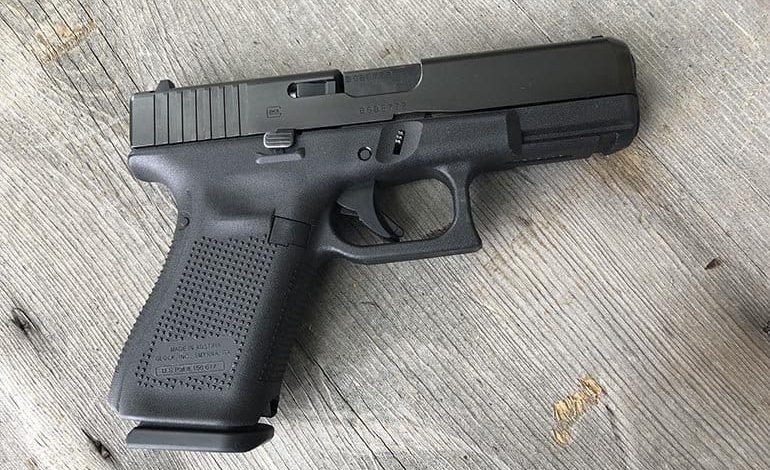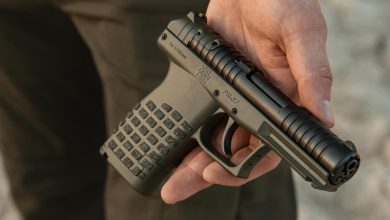FPC Asks Court To Nix Massachusetts Handgun Ban

The Firearms Policy Coalition (FPC) is once again in the courtroom fighting for the Second Amendment rights of Americans. On Tuesday, the organization filed a motion for summary judgment in a lawsuit challenging the constitutionality of Massachusetts’ ban on several modern handgun models.
In Granata v. Campbell, FPC’s motion argues that the commonwealth’s ban on many common handguns, including the ubiquitous Glock 19, runs afoul of the Second Amendment when examined under the precedents set in Heller and Bruen.
Under state law, it is illegal for licensed firearms dealers to transfer a handgun if, among other things, it lacks a tamper-resistant serial number, is made of a metal that does not meet certain melting point, tensile strength, or density requirements, lacks a safety device that prevents unauthorized use of the firearm, lacks a mechanism to preclude an average five-year-old child from operating the handgun, including but not limited to a trigger resistance of at least a 10-pound pull, an altered firing mechanism for which a five-year-old’s hands would be too small to operate the handgun, or requiring a series of multiple motions to fire the handgun, and lacks a load indicator or magazine safety disconnect, if it is a semiautomatic handgun. That law obviously outlaws many of the most popular striker-fired handguns on the market today popular for self-defense and other legal purposes.
In its motion, FPC laid out the key elements of the case in the very first paragraph.
“The Supreme Court has repeatedly explained that handguns are ‘arms’ that are indisputably in ‘common use’ for self-defense today [and] are, in fact, ‘the quintessential self-defense weapon,’” the motion began. “As such, ordinary semi-automatic handguns and revolvers are categorically protected and cannot be banned. In direct defiance of this precedent, Massachusetts has closed its borders to large portions of the modern handgun market, banning as ‘unsafe’ many of the firearms that are most trusted by the American people across the country, substituting its judgment for theirs. That it cannot do. As Heller explained clearly, it is the choices of ‘the American people’ that matter in deciding what is and what is not ‘in common use’ and, therefore, protected.
In fact, the FPC argued in its brief that the law so clearly violates the Second Amendment rights of state residents that the second Bruen principle—historical precedent—need not even be considered.
“There is, therefore, no need to do any original historical analysis to resolve this case—it can be resolved on binding Supreme Court precedent alone,” the motion stated. “To the extent that this Court reviews additional historical evidence that the Commonwealth may present, the result is the same. Heller already reviewed the relevant historical landscape and reduced it to an easily applicable principle: arms in common use cannot be banned. The Commonwealth will not be able to turn up any historical tradition that would contravene that principle.”
FPC President Brandon Combs said in a news release announcing the court action that Massachusetts state leaders must realize that the Constitution applies to them just like it does other states.
“The Commonwealth of Massachusetts is not exempt from the United States Constitution, and it cannot ban the sale of common handguns, full stop,” Combs said. “We look forward to eliminating this ban and continuing our progress and work restoring the right to keep and bear arms in Massachusetts and throughout the country.”
Read the full article here






